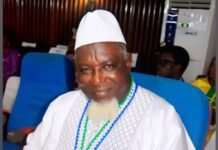By Amin Kef (Ranger)
The International Monetary Fund (IMF) has announced a new 38-month Extended Credit Facility (ECF) arrangement with Sierra Leone, worth approximately US$253 million on Friday September 20, 2024 in Washington, D.C. The agreement, reached after a series of consultations, underscores the confidence the global financial institution has in Sierra Leone’s leadership under President Dr. Julius Maada Bio.
The ECF is designed to restore macroeconomic stability, reduce debt vulnerabilities and rebuild international reserves while promoting inclusive growth and targeted social spending. It also aims to strengthen governance and address the objectives set forth in Sierra Leone’s 2024-30 Medium Term National Development Plan (MTNDP).
President Bio was lauded for his role in restoring confidence among international financial institutions. He expressed gratitude to Minister of Finance, Sheku A.F. Bangura and the nation’s economic team for their tireless efforts during challenging economic conditions. “Strengthening trade and investment cooperation between the United States and Sierra Leone is vital for our enduring relationship,” President Bio stated, emphasizing the broader implications of the IMF agreement.
The President further noted that the new arrangement presents an opportunity to attract private sector investments, particularly in the energy and agriculture sectors. “I had the honor of addressing a United States Government Roundtable with Trade and Investment Agencies, where I shared my Government’s key priorities,” he added.
Mary Catherine Phee, Assistant Secretary of State for African Affairs, highlighted Sierra Leone’s pivotal role in regional and international partnerships during her meeting with President Bio. She praised the country’s leadership in the United Nations Security Council and the African Union Peace and Security Council.
The IMF mission led by Christian Saborowski, conducted consultations from September 4 to 13, 2024 to finalize the ECF arrangement. Christian Saborowski commended Sierra Leone’s new economic team for taking decisive steps to address the nation’s economic challenges, which included a significant cost-of-living crisis. “The authorities reduced the domestic primary deficit by 2.8% of GDP in 2023 and are on track to reduce it by another 2.1% this year,” he reported.
Significant progress has been noted, with inflation decreasing from a peak of 55% in October 2023 to 25% in August 2024. While challenges such as high Treasury bill rates and low international reserves persist, the IMF remains optimistic about Sierra Leone’s economic prospects. Economic growth exceeded 5% in both 2022 and 2023, largely driven by robust mining activities.
The ECF arrangement aims to restore stability by addressing fiscal risks, reducing inflation and strengthening reserves. It will also promote inclusive growth through structural reforms and targeted social programs, including initiatives aimed at reducing gender inequality and addressing climate-related risks.
Following discussions with senior Sierra Leonean officials, including President Bio and Finance Minister Bangura, Saborowski expressed gratitude for the constructive dialogues. The IMF Executive Board is expected to review and approve the agreement in the coming months.
In a warm meeting with IMF Managing Director Kristalina Georgieva, President Bio expressed his appreciation for the IMF’s support. Georgieva congratulated Sierra Leone on reaching the staff-level agreement for IMF assistance and reaffirmed the organization’s commitment to supporting the country’s economic stabilization efforts.
The ECF arrangement will play a crucial role in achieving fiscal and debt sustainability, improving monetary policy operations, and addressing various economic challenges, including inflation and external sector stability.
“We have been engaged with the IMF for a very long time. When we came in, the country was out of program, but we implemented measures that restored their confidence in us,” President Bio reflected. “This is an opportunity to thank our country team and the IMF leadership for their support as we continue to pursue necessary reforms at home.”




